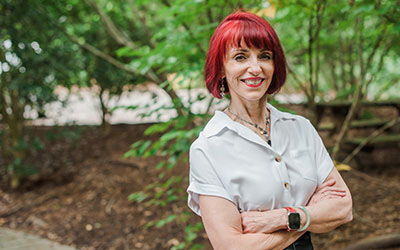Welcome to the Psychoanalytic Center of the Carolinas!
The Psychoanalytic Center of the Carolinas (PCC) advocates deep, empathic care to relieve emotional suffering and promote resilience. A welcoming community, we bring together a diverse group of mental health professionals to collaborate and share knowledge.
As a membership organization, we provide in-depth training, continuing education and collegiality for members to grow both personally and professionally. As a referral network, the PCC connects patients seeking treatment with skilled psychoanalysts and psychoanalytic psychotherapists.
Read the PCC’s three-year Strategic Plan.
Psychoanalytic Training
The PCC enables mental health professionals to further their knowledge, become better therapists, and advance their careers through a wide array of learning opportunities in the field of psychoanalysis and psychodynamic psychotherapy. We seek to explore the evolving body of psychoanalytic ideas and support therapists in applying this dynamic, life-changing approach to contemporary practice.




